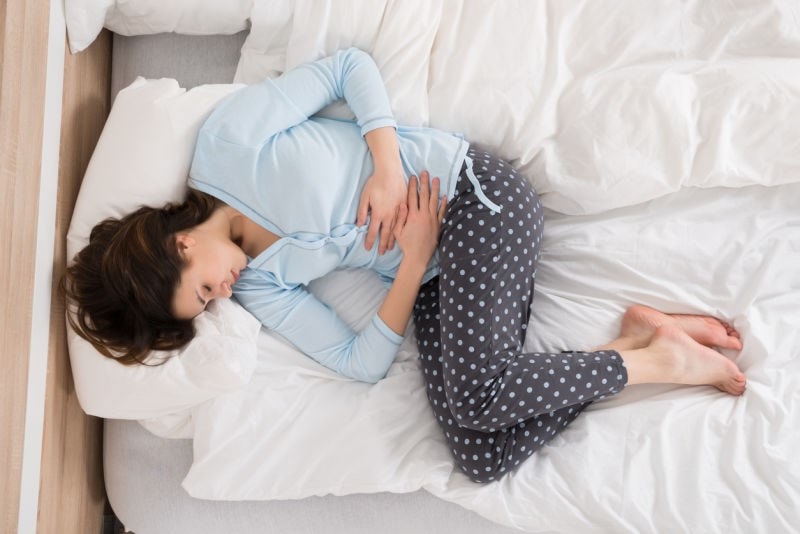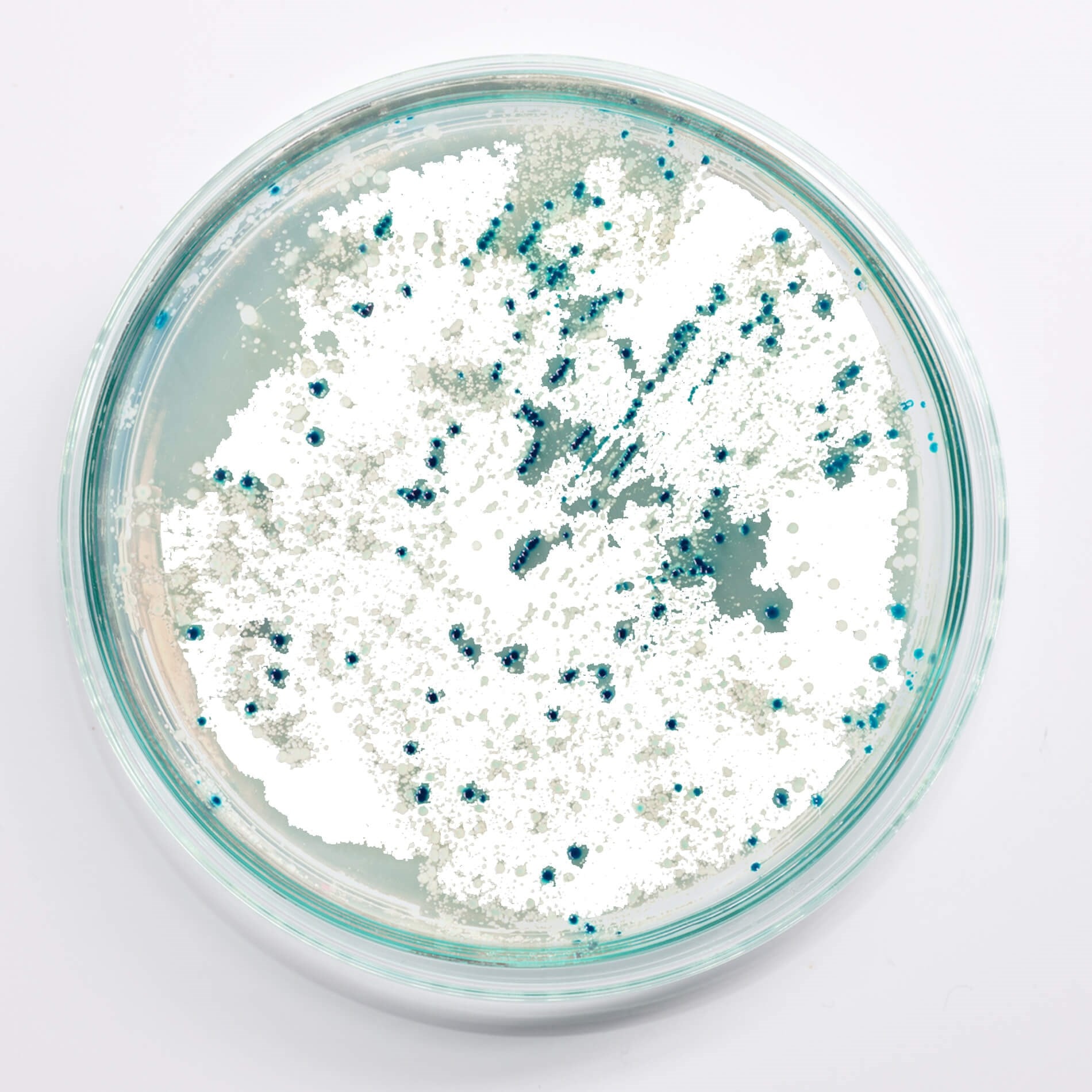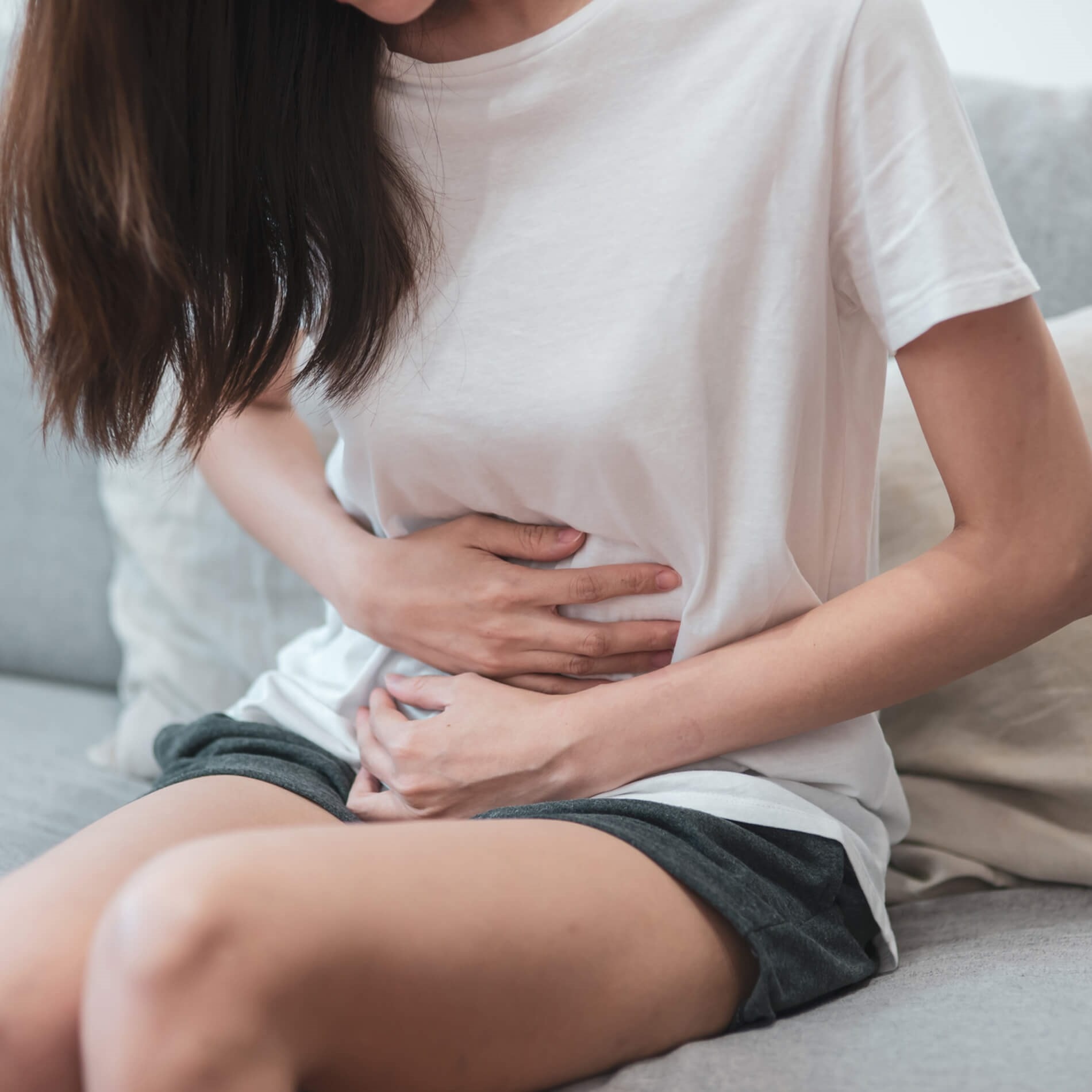Probiotics for Diarrhoea and Food Poisoning
Trillions of bacteria live inside us, predominantly in our gut, and these populations are essential to good health. Some of these bacteria work synergistically with body systems to keep their host healthy; these 'good' bacteria are known as ‘probiotics’. However, many less desirable micro-organisms may also inhabit the gut; these are known as ‘pathogens’, and can cause upset stomachs and diarrhoea, either in the form of gastro-enteritis, or on an ongoing basis such as in IBS-type symptoms.
In this article we'll look at the different factors which can upset the delicate balance in our gut and cause an upset stomach, and consider how probiotics can help with diarrhoea.
- Probiotics for diarrhoea and upset stomach
- Causes of diarrhoea and upset stomach
- Probiotics for food poisoning
- Probiotics for gastroenteritis and stomach flu
- Probiotics for traveller's diarrhoea
- Probiotics and IBS-D
- Best probiotics for diarrhoea
Probiotics for diarrhoea and upset stomach
Whether you're experiencing stomach discomfort at home, due to food poisoning or a viral infection, or in a hostel in Mumbai, due to traveller’s diarrhoea, research indicates that specific strains of probiotics may help to ease diarrhoea symptoms. As well as helping to manage the symptoms of these stomach upsets, probiotics can also offer a level of protection against developing them. There has even been confirmation from the NHS1 that certain probiotics can be helpful for diarrhoea and upset stomach, following a review which looked at a number of clinical studies on probiotics and diarrhoea, and concluded that they "reduced the duration of diarrhoea by about 25 hours compared with no treatment".
Causes of diarrhoea and upset stomach
Whilst the symptoms are often the same, namely: abdominal pain, cramps and diarrhoea, there are in fact a number of different causes for an ‘upset stomach’.
- Food poisoning – caused by consuming food contaminated with infectious organisms, usually pathogenic bacteria, but sometimes viruses or parasites. Food poisoning is a major cause of bacterial gastroenteritis, most commonly from pathogenic bacteria such as Salmonella and Norovirus. Food poisoning and gastroenteritis tend to resolve themselves after a couple of days, so treatment typically involves managing the symptoms of stomach cramps and diarrhoea, and preventing dehydration and loss of mineral electrolytes.
- Stomach bug /stomach flu/gastric flu – also known as viral gastroenteritis. Stomach flu is a viral infection that is highly contagious and passed from person to person. Common viruses that cause stomach ‘flu’ include: Adenovirus, Rotavirus and Norovirus. The symptoms are very similar to those of food poisoning, however they can typically take a little longer to disappear.
- Traveller’s diarrhoea - Normally, our gut is exposed to a certain type of bacteria in everyday life and our immune system is accustomed to this. However, when we visit different countries, our bodies become exposed to very different types of bacteria that we may not have previously encountered, usually by consuming the food and drinking water. Consequently, our body goes into a 'defence mode', especially if the micro-organisms are pathogenic and cause inflammation in the gut. This causes stomach upsets, sickness, diarrhoea, and general discomfort. Trying the local cuisine in countries such as Thailand, India, Egypt or Cambodia may also lead to diarrhoea or sickness, often referred to as "travellers' diarrhoea". Even drinking the water in some countries can cause illness.
- IBS-D – is a subset of Irritable Bowel Syndrome, and stands for IBS- diarrhoea. IBS can be triggered by a gut infection, diet or lifestyle, though sometimes there’s no obvious cause. The symptoms of loose stools and stomach cramps are similar to some of the symptoms of infectious stomach upsets. Symptoms can be present on an ongoing basis, or sufferers may experience periods of relief, interspersed with flare-ups.
Let’s now look at ways to help support the body through these kinds of gastrointestinal issues, and consider the potential role for probiotics, as we answer the question ‘Are probiotics good for upset stomachs?’
Probiotics for food poisoning
People often ask whether probiotics help with food poisoning and, in short, the answer is yes. Specific strains of good bacteria have shown to help alleviate the symptoms of many gastric illnesses including diarrhoea and reduce symptom duration by up to 24 hours.
One particular strain, clinically trialled2 to reduce the effects of stomach upsets, is Saccharomyces boulardii. It is unique from other bacteria, such as Lactobacillus acidophilus species, because it is actually a probiotic yeast. Originally found in lychee fruit, this probiotic strain is known for its transient qualities, meaning that it doesn't colonise in the intestines. Interestingly, it has a sticky outer membrane which it uses to adhere itself to harmful bacteria, including E. coli and Salmonella. This process is thought to help remove any bad bacteria from the system. Saccharomyces boulardii is the only probiotic that functions in this way, making it a valuable therapeutic tool to tackle most stomach upsets. It has even been found helpful in limiting Clostridium difficile3 infection in the gut. C. difficile is a notoriously difficult pathogen to eradicate, as it is becoming more and more resistant to antibiotics.
Although food poisoning typically resolves in a couple of days, it can cause lasting damage to the natural balance in the gut microbiome, and sometimes results in ongoing digestive disorders.
Read more about Saccharomyces boulardii on The Probiotics Database.
Probiotics for gastroenteritis and stomach flu
In the previous section we learnt that Saccharomyces boulardii can be used to cleanse the pathogens involved in food poisoning from the gut. However, this amazing probiotic strain has even proven to be effective against certain viruses, including, rotavirus4 one of the viruses often implicated in stomach flu. So it seems that whether symptoms were bought on by eating contaminated food, or simply through contact with a person suffering with a stomach virus, Saccharomyces boulardii is the best probiotic for upset stomach.

Another probiotic strain that could be of note here is Lactobacillus paracasei CASEI 431®. This strain is known for its immune-modulatory properties. One 2012 study5 showed that after just 6 weeks of intervention with this probiotic strain, study participants saw an average 37% increase in IgG production versus the placebo group, and a significant increase in sIgA over placebo. The antibody IgG protects against both viral and bacterial infections in the host.
Lactobacillus paracasei CASEI 431® has not been researched specifically for gastric flu but has been researched and shown to be help with diarrhoea in children6, and is well-documented for immune support so may be another option to consider for those who often suffer from viral upset stomachs.
Read more about Lactobacillus paracasei CASEI 431® over on the Probiotics Database.
Probiotics for Traveller’s diarrhoea
Whether you're going away to a familiar destination, returning home to see family or backpacking to distant lands to explore uncharted territory, holidays are invariably a memorable experience. However, sometimes these new experiences can also produce some nasty and uncomfortable stomach-related side effects.

Saccharomyces boulardii is an extensively clinically researched7 probiotic for “traveller’s diarrhoea”, which has been found to support gut health in those travelling abroad to exotic locations. S.boulardii, as mentioned above, works differently from other probiotics specifically because of its unique transient qualities. This means that it can pass through the system without binding to the gut wall. It works by adhering itself to harmful bacteria and gently removing those unwelcome pathogens from the system.
This makes S. boulardii the best probiotic for traveller's diarrhoea, but ideally it is also a good idea to also take other types of probiotics alongside Saccharomyces boulardii to give an extra level of protection to the gut, and to battle bad bacteria and other nasties in two ways. Live cultures, like L. acidophilus and L. rhamnosus possess qualities that enable them to line the interior of the gut wall, creating a physical barrier and fortifying the gut's natural defences. They also create a gut environment which discourages the growth of pathogens, so can be a particular aid against contracting upset stomachs in countries where tummy troubles are a common issue for travellers.
Probiotics and IBS-D
Unlike the above causes of ‘upset stomach’ IBS-D is not an infection, however in some instances it can be triggered by a GI infection, such as food poisoning. Many IBS sufferers do have dysbiotic gut flora, with a reduction in ‘friendly’ strains of bacteria, and increased levels of pathogens. Saccharomyces boulardii can still be used to excellent effect against the symptom of diarrhoea in IBS-D sufferers. Read more about dysbiosis on the Probiotics Learning Lab.
Another probiotic strain: Lactobacillus acidophilus NCFM® has also demonstrated its ability to reduce diarrhoea,and provide good all round gut support. One trial8 using this particular strain found that study participants that took this probiotic strain in combination with 2 other strains, over a 14 week period, saw a statistically significant reduction in episodes and severity of diarrhoea, compared to those in the placebo group. To read more about IBS-D visit The Probiotics Learning Lab.
Read more about Lactobacillus acidophilus NCFM® over on the Probiotics Database.
Best probiotics for diarrhoea and upset stomach
There are a few different probiotics which have shown potential to help alleviate diarrhoea symptom (see list of strains below); however, overall Saccharomyces boulardii is regarded as the 'go-to' strain for all types of diarrhoea9,10 including: infectious diarrhoea, viral gastroenteritis (stomach flu), traveller’s diarrhoea and IBS-D. This transient probiotic strain effectively cleanses pathogens from the digestive tract, and helps to restore the gut flora back to a healthy balance. It can be taken alone, but as it is transient and does not colonise in the gut, ideally should be used in conjunction with other colonising probiotic strains. To sum up the question 'can probiotics help with diarrhoea?':
- Saccharomyces boulardii effectively removes pathogens from the gut, including Salmonella and E. coli; is effective against rotavirus and other stomach bugs, and can be used for all types of diarrhoea including traveller's diarrhoea and IBS-D.
- Lactobacillus acidophilus NCFM® has been researched for diarrhoea and IBS symptoms
- Lactobacillus paracasei CASEI 431® increases IgG antibody, one of the body’s first immune responses against viral and bacterial infections
- Taking a high-quality well-researched daily probiotic helps to maintain a healthy microbiome, which may help to avoid upset stomachs
You may wish to read other articles related to probiotics for diarrhoea below:
Probiotics & Antibiotic-Associated diarrhoea.
Probiotics & Clostridium difficile
References
- nhs.uk. (2018). Probiotics 'Ease Upset Stomachs'. [online] Available at: <https://www.nhs.uk/news/medication/probiotics-ease-upset-stomachs/> [Accessed 7 October 2018].
- Hochter, W. et al (1990). 'Saccharomyces boulardii in acute adult diarrhea. Efficacy and tolerance of treatment.' Munchener Medizinische Wochenschrift; Vol. 132 (12) pp. 188-192
- Tung J.M. et al., (2010), ‘Prevention of Clostridium difficile with Saccharomyces boulardii: A systematic review’. Canadian Journal of Gastroenterology, 23(12):817-821.
- Das S, et al. (2016) Efficacy and Safety of Saccharomyces boulardii in Acute Rotavirus Diarrhea: Double Blind Randomized Controlled Trial from a Developing Country. J Trop Pediatr. Dec;62(6):464-470
- Rizzardini G. et al., (2012), ‘Evaluation of the immune benefits of two probiotic strains Bifidobacterium animalis ssp. lactis, BB-12® and Lactobacillus paracasei ssp. paracasei, (L. casei 431®) in an influenza vaccination model: a randomised, double-blind, placebo-controlled study’. Br.J.Nutr; 107:876-84.
- Gaon D. et al., (2003), ‘Effect of Lactobacillus strains and Saccharomyces boulardii on persistent diarrhoea in children’. Medicina, 63:293-298.
- Kollaritsch, H. et al. (1993). 'Prevention of traveller's diarrhea with Saccharomyces boulardii. Results of a placebo controlled double-blind study'. Fortschr Med, 111(9): 152-6
- Heiser, C.R. et al. (2004). ‘Probiotics, soluble fiber, and L Glutamine (GLN) reduce nelfinavir (NFV) - or lopinavir/ritonavir (LPV/r)-related diarrhea.’ J. Int. Assoc Physicians AIDS Care (Chic Ill), 3(4):121-129.
- Li Z, Zhu G, Li C, Lai H, Liu X, Zhang L. Which Probiotic Is the Most Effective for Treating Acute Diarrhea in Children? A Bayesian Network Meta-Analysis of Randomized Controlled Trials. Nutrients. 2021 Nov 29;13(12):4319. doi: 10.3390/nu13124319. PMID: 34959871; PMCID: PMC8706888.
- Zengbin L et al., (2021) Which Probiotic Is the Most Effective for Treating Acute Diarrhea in Children? A Bayesian Network Meta-Analysis of Randomized Controlled Trials. Nutrients, 13: 4319.


